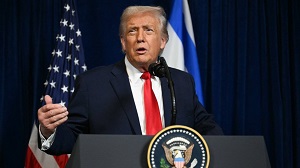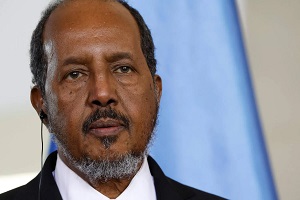The week that might change history - By Abdulrahman al-Rashed, Asharq al-Awsat
By the “history” referred to in the title of this column, I mean the history of more than seventy years of special ties between the United States and Saudi Arabia. This special relationship has been enduring a difficult test since a draft law allowing the families of 9/11 victims to sue the Saudi government and institutions was okayed by Congress. US President Barack Obama must have informed Congress that he refuses the new legislation, using his right to veto.
However, both chambers of Congress informed the president that they will be extending the duration of the session, just in case senators need to vote against the veto and insist on the new law.
Unless 34 out of 100 senators in Congress are convinced that the new law will be erroneous and dangerous and that they should support the president, this week is set to be the worst in the history of the two countries. It would also abolish the concept of sovereignty between the two nations and the relations between the two.
Over the past few days, a large number of senior politicians rallied against Congress’ decision, including former presidents of the United States. The European Union also advised against the adoption of the legislation and a number of world leaders are against it. Two days ago, the New York Times reported that President Obama said that even though he is not currently on good terms with Saudi Arabia, he is nonetheless against the decision for fear of its consequences on the sovereignty of the country and for fear of the damages it will engender on the international level. As for those who worked on the prosecution project, whether lawyers or politicians drafting the law and rallying the needed support for it, they spent a lot of time on it and won’t back down easily. They relied on emotions more than legality and set the dates of the vote in both chambers before the elections so that they could blackmail the candidates in their states and regions, on both the emotional and political level. During election season, they will remind representatives to either stand “with Saudi Arabia or the American victims and their families!”
Now, the most important question is whether there are 34 senators in the Senate who will heed logic and stand by President Obama. Or will this year end up not only with a nuclear agreement with Iran but also with a law sanctioning Saudi Arabia?
Bizarre legislation
The bizarre legislation is akin to holding the US’ ally Britain accountable after World War II. The Saudi Kingdom has actually been the US’ primary partner in the war on terror since 2001, after the 9/11 attacks.
It is a crucial week that will prove that those who have sought for decades to sabotage ties between the two governments have succeeded to a large extent, after having tried many times in vain in the past.
In the 1970s, there were calls to impose sanctions on Saudi Arabia because of the oil embargo and the rise in oil prices but successive US governments have refused to do so. Then, fresh calls demanded that the Saudis be held accountable for their support of the PLO – those calls did not succeed either. Ironically, in the late 1990s, there were waves of criticism from different organizations because Saudi Arabia had prosecuted and arrested extremist groups after the bombings in Riyadh and the formation of various organizations and associations that were accused of being affiliated with al-Qaeda in its infancy.
Articles and reports were published in the British and American press criticizing the imprisonment of extremist members in what they considered a violation of their human rights. After the September 11 attacks and the announcement of the US war on terror, there has been a significant improvement in the American stance and understanding toward the Saudi position. Cooperation in the security sphere improved and involved American security organizations, such as the FBI, for the first time. For nearly ten years, security ties were stronger than political ties.
This long history that extends from the discovery of oil, to the strong political alliance, then to fighting common wars and finally confronting terrorism in our current era, is now exposed to a great challenge threatening to demolish its achievements.
Latest News
-
 Syria reveals new post-Assad banknotes
Syria reveals new post-Assad banknotes
-
 Hamas Armed Wing Refuses to Surrender Weapons, Confirms Spokesman Killed by Israel in August
Hamas Armed Wing Refuses to Surrender Weapons, Confirms Spokesman Killed by Israel in August
-
 Trump says 'hell to pay' if Hamas fails to disarm in short period
Trump says 'hell to pay' if Hamas fails to disarm in short period
-
 Somali President to Visit Türkiye After Israeli Recognition of Somaliland
Somali President to Visit Türkiye After Israeli Recognition of Somaliland
-
 Syrian Army Enters Latakia, Tartus after Attacks by Regime Remnants
Syrian Army Enters Latakia, Tartus after Attacks by Regime Remnants